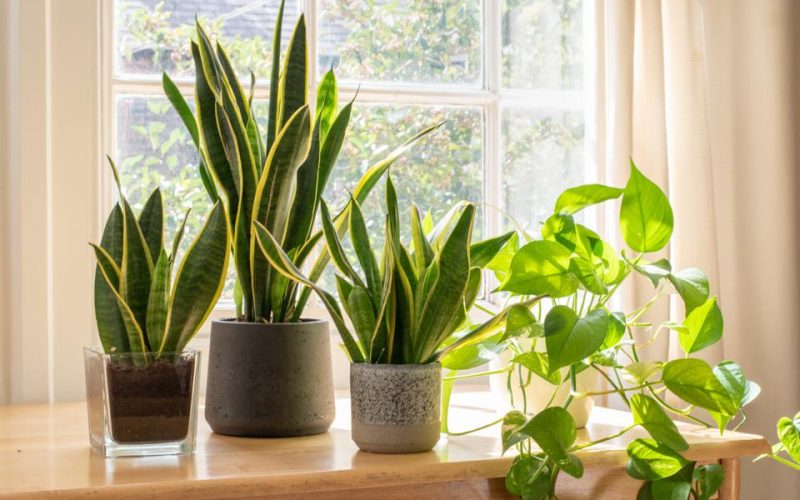We tend to become overly connected to things that appear to be gleaming and elegant.
As a result, the plants have, and we find some connection and vibes if we come close to them.
More specifically, we will inform you about one interesting fact: plants are designed to repair any problems in life.
Keeping this in mind, we’ll tell you about eight fascinating facts about plants that will make you feel enthralled and enthusiastic about them:
- Peanuts are legumes related to the family of beans and lentils, not nuts.
According to the National Peanut Board, they have more protein, niacin, folate, and phytosterols than any other nut.
- The title of the world’s hottest chilli pepper is still up for grabs.
Bhut jolokia gained the Guinness World Records distinction for being 401.5 times hotter than bottled hot pepper sauce in 2007, although since then, other hotter chilis have claimed the title.
- A strawberry has 200 seeds on average. It’s the only fruit in which the seeds are visible on the outside.
- Garlic mustard is a mustard family member, not garlic. In the Eastern and Midwestern United States, this invasive herb outcompetes native plants, posing a hazard to other native plants and the animals that rely on them.
- Ginkgo biloba is one of the world’s oldest living tree species, dating back 250 million years.
Another old species is the dawn redwood (Metasequoia glyptostroboides), dating back roughly 150 million years. Before they were discovered alive, both had been discovered in the fossil record.
- The rose family includes peaches, pears, apricots, quinces, strawberries, and apples.
Ornamental plants, including spirea, mountain ash, goatsbeard, and ninebark, are among them.
Cranberries, Concord grapes, and blueberries are three common North American fruits.
- Snapdragon blossoms resemble a dragon, and squeezing the sides makes the dragon’s jaws open and close.
- Sunflower appears to be a single enormous bloom, yet each head is made up of hundreds of tiny flowers called florets, which develop into seeds.
All sunflower plants, including daisies, yarrow, goldenrod, asters, coreopsis, and bachelor’s buttons, fall within this category. Order plants online and add years to your life.
- The festival of the lily-of-the-valley, La Fete du Muguet, takes place on May 1 in France.
Giving lily-of-the-valley bouquets to loved ones as a way of wishing them health and happiness is part of the celebration.
- Angiosperm refers to seeds carried in capsules or fruits and is the scientific name for flowering plants. Gymnosperms are nonflowering plants such as pines, spruces, firs, junipers, larches, cycads, and ginkgoes.
- Iris was the rainbow goddess in Greek mythology, and her name means “rainbow” in Greek. Wormwood (Artemisia), milkweed (Asclepias), and Hebe were called after the Greek goddesses Artemis and Hebe, respectively.
- The titan arum flower (Amorphophallus titanium) is the world’s largest unbranched flower, reaching up to 15 feet tall. The bloom has a rotten meat odour, earning it the nickname corpse flower. Rafflesia, another plant native to the Sumatran jungles, has a similar scent. Both plants developed their aroma to attract flies and avoid competing with other blooms for butterflies and hummingbirds.
- The oleander (Nerium oleander), a lovely Mediterranean flowering shrub, is deadly in all sections. Consuming oleander leaves can result in gastrointestinal, cardiac, and central nervous system issues, as well as the possibility of death.
- Poinsettias, native to Mexico, were brought to the United States in 1825 by Joel Poinsett, the first American minister to Mexico.
- Cranberries bounce and float in water due to small pockets of air inside them.
- Avocados and pumpkins are botanically fruits, not vegetables because they bear the seeds of the plants. On the other hand, rhubarb is a vegetable. If some of your loving readers want to have some fantastic flowers and plants for your home, then you can now order plants online, where you will find out some excellent and positive options for your flowers and several kinds of plants too. Order indoor plants online and accentuates greenery in your living area and as well as garden area.
- Saffron has been obtained from the stigmas of a variety of fall-blooming crocus, Crocus sativus, and is used in Mediterranean cooking.
- Pineapple comes from European explorers who thought the fruit looked like a pinecone but had apple-like flesh.
- Tulip bulbs were so expensive in Holland during the 1600s that they were worth more than gold. The enthusiasm was known as tulip mania or tulipomania, and it resulted in the Dutch economy collapsing. After being clipped, tulips can continue to grow at a rate of up to one inch per day.
- The vanilla flavour is derived from the pod of the Vanilla planifolia orchid. Despite their name, vanilla beans are more closely linked to corn than green beans.
- The coast redwood (Sequoia sempervirens) is the world’s tallest tree, growing along the Pacific Coast of the United States, primarily in California. However, it isn’t the world’s oldest-growing tree; that honour belongs to a bristlecone pine (Pinus aristata).
- Bamboo is the world’s fastest-growing woody plant, capable of growing 35 inches in one day.
- The residents of Ohio consider tomato juice a blessing.
It is recognized as the official beverage of that location and is offered to anyone special, and it holds a special place in our hearts. In the late 1800s, tomato juice played a prominent role in Ohio.
That is why the tomato is still referred to as a delicious beverage in Ohio.
A plant is beneficial to human growth, and everyone enjoys planting plants once they realize their value. We must serve our mother Earth by planting more plants and providing more greenery, which will benefit us in the long run.
So that was all fantastic information about plants today, and hopefully, you were interested enough to learn more and enjoy it.
Plantations have always been beneficial to us because they are commonly used to produce herbs and tonics.
The spread of more plants will reduce the number of diseases in our world.
And, according to studies, we are losing more than millions of trees each year, posing a threat to everyone.





